
THE VOICE OF INTERNATIONAL LITHUANIA
|
VilNews has its own Google archive! Type a word in the above search box to find any article.
You can also follow us on Facebook. We have two different pages. Click to open and join.
|
Featured blue
Guide to battling stereotypes of Lithuania abroad
- Posted by - (4) Comment
The Lithuanian section of the Matador Network's "How to piss off..." guides has recently become a Facebook hit. The author, a Lithuanian travel blogger, has collected the most typical faux pas heard from foreigners around the world, and provided sometimes lengthy and heartfelt explanations on how these cliches about Lithuania are not true. Having visited 33 countries and talked to people from many more, I suggest a different approach to ignorance.
Lithuanian travelers, Lithuanian expats, people of Lithuanian origin and those who have spent time in Lithuania and feel connected to the place know these stereotypes by heart: Lithuania is a part of Russia, or maybe in Africa, it doesn't have its own language; people drink insane quantities of vodka and have never created or invented anything, which is not surprising, because Lithuania, in the view of many, did not exist before the USSR miraculously fell apart. The USSR and now Russia are central in the cliches about Lithuania, which are nowhere as bad and boring as global cliches about Russia.
Yet, as this Lithuanian op-ed rightly claims, small Eastern European countries are associated with poverty, but Russia is not. The author suggests playing along with the stereotypes and having fun in the meantime, making ignorant hotel staff think you might be an oil-money-saturated investor or a dangerous secret agent. I tend to agree with this author.
As exchange students in Sweden, my friends and I often tried to fight ignorance and stereotypes. Sometimes we searched for comparisons in other countries' history. Those times are long gone. I don't think that the approach chosen by the author of the "How to piss off..." guide actually helps - I would guess that most people would think, "If there's all this amazing ancient history, how come I never heard of it at school?" and forget it. You can't cure all the world's ignorance. So why not show ignorant people the truth - that they have to go home and quietly do their homework?
If people asking questions come from another continent - just lower your expectations
Few people know all the countries in the world. Few Lithuanians would be able to place Angola on a map, and I bet that many would not be able to tell Luxembourg from Liechtenstein (which I find absolutely infuriating). So people from overseas should not be expected to know the location of Lithuania or even the basic facts about it. When I traveled in the US and people asked me where I was from, I usually said, "From Europe." It was up to them whether to ask for a clarification - most often they didn't, but some were almost angry that I did not expect them to know countries in Europe. In Japan, most people knew Baruto Sankoku - the three Baltic States. In Israel most people needed no explanation, and if they frowned and thought aloud, "where is it exactly?", it was often enough to say "Where Šarūnas Jasikevičius comes from." Let people from overseas surprise you.
If people from the EU are ignorant, have no mercy
Yes, ignorant Europeans still exist. I've been asked if my country is democratic several times - as if the EU would accept non-democracies. It is absolutely inexcusable for literate EU citizens not to know which countries are in their union. Anyone with higher education should know the capitals and languages of the countries of the union, and where they can travel passport-free. It is useless to explain them about pagan gods and laser research centers - you don't owe them a proof that we not savages, because they are. I suggest it's best to shame those people by using European and EU references, and to play along whenever they display any signs of such ignorance:
- Is your country democratic?
Absolutely not. Tribal chiefs select their supreme leader in a sword fight. In fact, when we had to elect the European Parliament, the idea of elections was so alien to the people that the supreme leader had to tell them they were voting which prisoner should be exiled to a distant island.
- So you speak Russian there?
No, we speak English there since 1990, and if needed, we will speak Chinese from 2030.
- But your language is a dialect of Russian?
Of course it is - and so are Latvian, Estonian, Czech, Slovak, Polish, Bulgarian, Slovenian and Croatian. In fact, when we all joined the EU, the term "official languages" had to be replaced by "official languages and dialects", and the Commissioner for Education, Culture, Multilingualism and Youth had to be renamed Commissioner for Education, Culture, Multilingualism and Multidialectism, and Youth [if they are educated, they should smell a nonsense]. The only problem is that Russians refuse to recognize all of those as dialects and to understand them.
If you are in a tolerant mood (and this is what I usually answer to similar questions): Pretty much like English and French. In the beginning it helps learning the tenses and so on, but then it only causes confusion. I only wish my language was more helpful for learning another language. It took me [X] years to learn Russian.
- You're from Lithuania? Spasibo! Na zdarovie!
[Answer in an exotic language of your choice]
- Your language is close to Finnish, I've heard.
Treat those with respect - they've heard of Estonia. It's enough to say "That's Estonian."
- Your country is not in Europe, right?
No, it's in Southern Africa [pretend that it's Lesotho and invent a tearful story of your emigration - this got my friend a few free dinners]
- Hey, you [don't drink vodka/ are vegetarian/ are short/ have dark hair/ don't like basketball/ don't cook cepelinai/ ...], but I thought that all Lithuanians...
Don't get me wrong - I have utmost tolerance to the more collectivistic cultures. In our culture no individual is required to represent the collective unless they choose to and have been appointed to do so.
Dessert
- But enough about my country, tell me about yours. Do you have Google there? You should try it - it's pretty neat, you can find a lot of information and even maps.
But there are people who always get it right - the Russians
They know that Lithuania is an independent country in Europe. They know that it has a separate language, and they appreciate every effort to learn Russian. They know that Lithuania is in the EU and that horses are not the main means of transport. Let's give them our due appreciation.
---
Daiva Repečkaitė is an associate editor at VilNews and blogger at Cafe Babel. Her personal blog: http://www.daivarepeckaite.com.
- Bookmark :
- Digg
- del.icio.us
- Stumbleupon
- Redit it
- Posted by - (1) Comment

EXPLORING EUROPE
A series of articles in 10 parts –
from 26 European countries
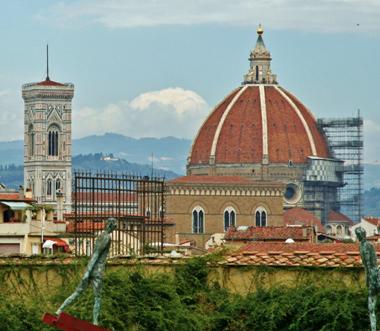
VilNews has over the latest weeks invited its readers to visit 26 European countries. Some articles dwelt with history. Some with Lithuanian contact points in various countries. I have travelled across Europe with camera and notepad for nearly 40 years and hope you enjoyed seeing and reading about some of my experiences.
Tour guide, writer and photographer:
Aage Myhre, VilNews editor-in-chief
aage.myhre@VilNews.com
Click on the below pictures or headlines
to read the articles and see the photos.
1. Exploring Europe
The more I travel around the world the more I realise that I am European. Although I have good, close friends and have experienced extraordinary things in all corners of the world. Maybe my mind is not sufficiently exotic. That's ok. I have grown older now. Driving a car is the best way to experience Europe.
Lithuania's border crossings to Latvia and Poland are no longer problematic. Within a day's drive you can reach most of the northern and central European countries. One more day and you can already stand and look out over the warm, slow waves of the Mediterranean Sea...
2. Switzerland and Italy
• The best known Lithuanian politician in Europebefore 1916 lived here in Switzerland
• Vilnius, Milan and Florence:
The world’s three Renaissance Capitals
• Venice shows me that architecture first of all is about life
• Santa Claus and a Lithuanian Grand Duchess are buried in
the same South Italian cathedral
3. Along the Riviera –
Italy, Monaco, France, Spain
• Grasse (the world’s perfume capital)
and a Lithuanian designer
• A VILLAGE IN LANGUEDOC, SOUTHERN FRANCE:
Jesus, Mary Magdalene, the “da Vinci Code”, “the Holy
Grail” and Vilnius University Library
• A good fish meal in Spain or Italy is often made in Lithuania
4. Alsace, Benelux, England
• The European Parliament is situated in Strasbourg.The Lithuanian members are there for YOU!
• Want to get a taste of Alsace in Vilnius?
• Erasmus of Rotterdam (1466 – 1536) is quoted as stating:
“I congratulate this nation [Lithuania] which now, in
sciences, jurisprudence, morals, and religion, and in all that
separates us from barbarism, is so flourishing that it can
rival the first and most glorious of nations.”
• Manchester hosts the oldest Lithuanian club in the UK
• The Beatles was discovered and managed by a Lithuanian Jew
5. Austria and Germany
• Sigmund Freud was a “Lithuanian Jew”• Linz represents the golden age of
Austrian – Lithuanian relations
• The Lithuanian school in Germany
• Vilnius was granted Magdeburg Rights in 1387
• The name LITHUANIA was first mentioned in the
Annals from Quedlinburg Abbey in year 1009
• Lithuanian war refugees in Germany after World War II
6. Scandinavia and Finland
• Lithuania, please look to Norway!• A Danish king came to Palanga in year 1161,
but he was no tourist
• A power bridge to Sweden is now under construction
• Why didn’t the Baltic States fight like Finland did in WWII?
7. Poland, Czech Republic,
Slovakia, Hungary
Pact countries
• The never-ending Polish – Lithuanian neighbour dispute
• My choice is Prague and Václav Havel
• The Hungarian language has Finnish-Siberian origin!
• Stephen Báthory, the Hungarian
who became Lithuania’s Grand Duke
• Lithuanian Panemunė Castle was built by
a Hungarian nobleman in the early 1600s
8. European Russia
• To Siberia – probably the only oneever going there voluntary, without a visa
• I got a visa to the USSR, 7 months
after the country had ceased to exist …
• A Viking was the first Russian ruler
• 43 Russian Orthodox churches in Lithuania
• Lithuania's 'Russian' Presidential Palace
was also used by Napoleon Bonaparte
• Russia and the Baltic States are nearest neighbours,
but not always best friends
• Lithuania and the Soviet Union 1939 – 1940
• Letters from Lithuanians deported to Siberia
9. Hanseatic Estonia, Latvia, Lithuania
• The Hanseatic League controlled trade and commerceat the Baltic Sea during 400 years
• Tallinn – the medieval 'Danish town’ that
introduced the Christmas tree to the world
• Riga – the Hanseatic city that became
the world's leading Art Nouveau Centre
• Klaipeda – Lithuania's 'German' port city,
with the best Baltic Sea beaches nearby
• Kaunas – the Hanseatic
trading point at the Nemunas River
10. Turkey, where Europe meets Asia
• “Peace in the homeland, peace in the world”Mustafa Kemal Atatürk (1881-1938)
• The Vikings arrived in Istanbul in year 860,
stayed there for 344 years, till 1204
• ISTANBUL: Water and land hand in hand
• In 1430 the Grand Duchy of Lithuania and the
Ottoman Empire were Europe’s leading countries
• Galatia, in the centre of today’s Turkey, was a
Biblical land of Celts from Ireland and Britain
• I can still easily study the pine-clad Taurus Mountains,
sloping down towards the sparkling clear Mediterranean Sea
- Bookmark :
- Digg
- del.icio.us
- Stumbleupon
- Redit it
- Posted by - (0) Comment
Lithuania’s 3 nightmares
By Kestutis Eidukonis, VilNews CEO
At the beginning of this month, I had the great privilege of representing the PLB (World Lithuanian Community) in its bi-annual meeting with members of the Seimas (Parliament). This joint commission meets twice a year and consists of ten members elected by the World Lithuanian Community and ten members of the Seimas, one from each party. The commission has two co-chairs one from the PLB and one from the Seimas. The co-chair from the PLB was Dr. Jonas Prunskis and the co-chair from the Seimas was Ona Valiukevičiūte.
The areas of debate and concern for the commission were:
- Bookmark :
- Digg
- del.icio.us
- Stumbleupon
- Redit it
- Posted by - (3) Comment
Lithuania’s 3 nightmares

By Kestutis Eidukonis, VilNews CEO
At the beginning of this month, I had the great privilege of representing the PLB (World Lithuanian Community) in its bi-annual meeting with members of the Seimas (Parliament). This joint commission meets twice a year and consists of ten members elected by the World Lithuanian Community and ten members of the Seimas, one from each party. The commission has two co-chairs one from the PLB and one from the Seimas. The co-chair from the PLB was Dr. Jonas Prunskis and the co-chair from the Seimas was Ona Valiukevičiūte.
The areas of debate and concern for the commission were:
- The 2014 Lithuanian Song Festival which will take place July 2-6 in 2014
- The preservation of the Lithuanian language in Lithuania, as an official EU language and abroad by the Lithuanian diaspora.
- The ability of Lithuanian Citizens to hold on to their Lithuanian Citizenship in spite of having another citizenship,
- The improvement of economic conditions in Lithuania so as to improve investment and job creation.
- The absolute imperative of having energy independence.
Out of all these areas the one that attracted the most debate, was the one concerning citizenship. In fact all these areas tied together. All members of the commission agreed that the most important problem facing Lithuania is the massive emigration taking place today. Preservation of Lithuanian song language and Lithuanian citizenship are all tied to improving the Lithuanian economy and energy sector so that Lithuanian citizens would not only not have a reason to leave, but also that the ones who left, would have a reason to return! Creating good high paying private sector jobs is the key to stopping the depopulation of Lithuania.
Interestingly enough not all members of the commission agreed as to what needs to be done.
As an observer of the Lithuanian Economic and Political Renaissance I have been impressed by some of the steps taken by the government to improve the business climate in Lithuania, but there is a total lack of political will by any political fraction to tackle head on the real problems that hold Lithuania back from becoming a true Baltic Tiger.
1. The government of Lithuania and the social safety net of Lithuania is too large for the population to support. With an approximate 37.7% of GDP - the size of the Government is a factor that needs to be addressed. Everyone agrees that there are too many governmental departments, but no one agrees on which one to cut and by how much. It is true that there are a large number of dedicated civil servants, but it is true that there are quite a few unnecessary, redundant departments staffed with wayward relatives who could not make it in the private sector. Lithuania is trying to be Norway, but without the North Sea Oil Fields.
2. The total tax rate on the Lithuanian people is way too high. I realize that, when compared to other EU countries Lithuania is not that high - but keep in mind that the best stimulus that can be given to the Lithuanian economy is the ability for companies to invest and for individuals to buy or to save. As the government continues to grab close to 40 % of the GDP and still find budget short falls the national debt will continue to increase, the cost of servicing the debt will continue to increase. These percentages do not include the payments all companies have to make to the Social Security System. If these payments are included the burden on Lithuanians is even greater. Some people also do not realize that Corporations do not pay taxes they merely collect them for the government. All taxes including social security are passed on the average consumer in the price of the item or service being sold. This tax burden keeps the velocity of money low, and unnecessarily depresses the GDP thus, slowing economic growth. It is interesting that a large number of uninformed politicians are calling for even more taxes such as a tax on property, autos, and financial transactions. This kind of talk has a way of scaring away investors, who need to plan in advance and need economic and political certainty. This periodic desire of politicians to squeeze the neck of the "Golden Goose" to extract even more eggs almost always backfires - all one has to do is to look at the "shadow economy" which officially stands at 30% - but is estimated by some to be as high as 50%. It is an interesting paradox that decreasing tax rates increases state revenue dramatically while increasing the tax rate does the opposite. The high tax rate also has a highly corrosive effect on people's faith in the government. The people see government officials living "high" while they have to struggle, in their minds this then justifies working the "shadow economy".
3. The high cost of energy is another huge drag on the economy. Every Lithuanian living near the borders who can, gets his fuel outside the country. The cost of heating, transportation and energy for manufacturing is included in all products and services made in Lithuania. Without energy independence we will continue to have a huge disadvantage in attracting investment either foreign or domestic. The government is playing around with the Ignalina project and with other energy providers. This will result in increasing the costs to the point of the projects becoming uneconomical. Thankfully the LNG plant is moving ahead and on schedule. But there is no substitute for having and being able to sell energy.
In summary if we want to stop the waves of emigration we need to turn the country around. The question is who has the will and the guts to do it?
- Bookmark :
- Digg
- del.icio.us
- Stumbleupon
- Redit it
- Posted by - (0) Comment
King of Lithuania?
Prince Inigo von Urach is ready!
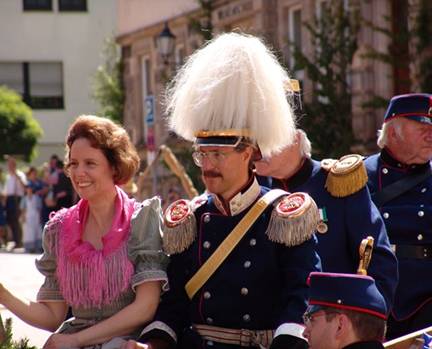
Prince Inigo of Urach, born 12 April 1962, with his wife –
Daniela Freiin von und zu Bodman, born 28 August 1963.
By Liudvikas Jakavičius-Grimalauskas
I am monarchist and I love to write about monarchy and nobility. I know that monarchy is not a topic that all people like, and that lot of people don’t want that monarchy returns to Lithuania. Personally, I think monarchy is the best form of government. If you research, 95% of the world monarchies are developed countries. But I respect all points of view, and also I can said that even if I prefer a monarchy to a republic, I am very satisfied with the work that our politicians have done, and I am very satisfied with the direction of our country. But, why do I think that this topic can be interesting for all Lithuanians? Because whether you like monarchy or not, this is part of our history, and Lithuanians like culture. So some people will like my points of views, and Prince Inigo von Urach views, and some will not. But the historical side of the article should be interesting for the majority of Lithuanians, whether they like monarchy or not.
Today Lithuania is a modern and dynamic North European nation of high technologies and innovations, with the second fastest growing economy in the European Union. But the territory that belongs to Lithuania has a large and old tradition as a Monarchy, tracing its political origins to 1219 as an independent Grand Duchy (The Grand Duchy of Lithuania), created by Mindaugas, a warrior who unified the territories that he conquered, proclaiming himself Grand Duke of Lithuania.
- Bookmark :
- Digg
- del.icio.us
- Stumbleupon
- Redit it
- Posted by - (6) Comment
King of Lithuania?
Prince Inigo von Urach is ready!

Prince Inigo of Urach, born 12 April 1962, with his wife –
Daniela Freiin von und zu Bodman, born 28 August 1963.
By Liudvikas Jakavičius-Grimalauskas
I am monarchist and I love to write about monarchy and nobility. I know that monarchy is not a topic that all people like, and that lot of people don’t want that monarchy returns to Lithuania. Personally, I think monarchy is the best form of government. If you research, 95% of the world monarchies are developed countries. But I respect all points of view, and also I can said that even if I prefer a monarchy to a republic, I am very satisfied with the work that our politicians have done, and I am very satisfied with the direction of our country. But, why do I think that this topic can be interesting for all Lithuanians? Because whether you like monarchy or not, this is part of our history, and Lithuanians like culture. So some people will like my points of views, and Prince Inigo von Urach views, and some will not. But the historical side of the article should be interesting for the majority of Lithuanians, whether they like monarchy or not.
Today Lithuania is a modern and dynamic North European nation of high technologies and innovations, with the second fastest growing economy in the European Union. But the territory that belongs to Lithuania has a large and old tradition as a Monarchy, tracing its political origins to 1219 as an independent Grand Duchy (The Grand Duchy of Lithuania), created by Mindaugas, a warrior who unified the territories that he conquered, proclaiming himself Grand Duke of Lithuania.
On July 6, 1253 Mindaugas was officially crowned as King of Lithuania by Pope Innocent IV. With his coronation was born the first Kingdom of Lithuania, giving rise to the state of Lithuania. When Mindaugas was killed by his nephew Trenoita, his nephew abolished the Kingdom and restored the Grand Duchy of Lithuania, which lasted until 1795, when Catherine “the Great” conquered Lithuania, and the Grand Duchy became part of the Russian Empire.
The peak in the history of Lithuania was the reign of Vytautas "the Great" between 1392 and 1430. The Lithuanian Empire during his reign covered more than a million square kilometers, and was one of the most powerful nations in Europe. Led by Vytautas "the Great" Lithuanians and their allies (Poland) destroyed the power of the Teutonic Order (Germany) in 1410 during the Battle of Grünwald.
The Battle of Grünwald was one of the largest battles in Medieval Europe and is regarded as the most important victory in the history of Lithuania.
The period 1569 - 1795 was the decline of Lithuania during their official union with Poland. In
1795, Lithuania was occupied by the Russians for the first time and Russians tried to exterminate
Lithuanian culture
Fortunately, Russians failed in their attempt to destroy Lithuanian culture, thanks to the work of many Lithuanian patriots. One prove of that is Lithuanian language that is one of only two living languages (together with Latvian) in the Baltic branch of the Indo – European language family. Lithuanian language is one of the world’s oldest languages and is believed to be the most conservative living Indo – European language, retaining many features of Proto – Indo – European now lost in other Indo – European languages. It's really amazing how our ancestors managed to preserve our language so pure, despite Russian oppressions.
The end of the eighteenth century was a period of revolutions that ended at the beginning of the nineteenth century destroying many monarchies. The majority of the revolting nations replaced their thrones with communist governments.
|
On February 16, 1918 Lithuania declared its independence from the Russian Empire. On June 4, 1918 the Council of Lithuania voted to invite HSH Prince Wilhelm von Urach, 2nd Duke of Urach and Count of Württemberg to become King of Lithuania. Within a few months of his election, it became clear that Germany would lose World War I and on November 2, 1918 the Council of Lithuania reversed its decision, proclaiming the first Republic of Lithuania. As King of Lithuania, HSH King Wilhelm von Urach used the name of Mindaugas II. His election as King of Lithuania can be explained by several factors: he was Roman Catholic (the dominant religion in Lithuania), he was not a member of the House of Hohenzollern, the family to which belonged the German Emperor Wilhelm II who wanted Lithuania to be a monarchy in personal union with Prussia (because Lithuania was the predecessor state of Prussia, the precursor state of the German Empire), he had had a successful military career, and finally, if the central powers had won the war, Lithuania could have expected German protection in the event of future intrusions by the Russian Empire. Wilhelm von Urach was born as HSH Prince Wilhelm Karl Florestan Gero Crescentius of Urach, Count of Württemberg. He was the eldest son of Friedrich Wilhelm Alexander Ferdinand of Württemberg, 1st Duke of Urach and Count of Württemberg (head of a morganatic branch of the Royal House of the then Kingdom of Württemberg), and of his second wife, Princess Florestine of Monaco, occasional acting Regent of Monaco (daughter of Prince Florestan I of Monaco). It is noteworthy that through his marriage to Duchess Amalie of Bavaria (1865–1912), HSH King Wilhelm von Urach is related, also, to the Lithuanian Princess Louise Caroline Radvila of Birzai. |
Prince Wilhelm of Urach, Count of Württemberg, 2nd Duke of Urach (Wilhelm Karl Florestan Gero Crescentius; German Fürst Wilhelm von Urach, Graf von Württemberg, 2. Herzog von Urach; 30 May 1864 – 24 March 1928) was a German prince who was elected King of Lithuania with the regnal name Mindaugas II on 11 July 1918. He never assumed the crown however, as German authorities declared the election invalid and the invitation was withdrawn in November 1918. |
Wilhelm never had the chance to visit Lithuania, remaining instead at Liechtenstein Castle; however he started to learn the Lithuanian language. He had no time to move to Lithuania and finish to learn Lithuanian, because the Council of Lithuania reversed its decision to inviting him to become King of Lithuania. As the last King of Lithuania, if the monarchy resurface someday, his great-grandson HSH Prince Inigo von Urach, Duke of Urach and Count of Württemberg would have the right to become King of Lithuania, as his heir.
Today, in the Liechtenstein Castle property of the House of Württemberg (Urach brand), there is a letter of Pope Benedict XV, welcoming Wilhelm's selection as the future King of Lithuania, and some letters between General von Ludendorff and Swiss government stating the election of King Mindaugas II in 1918.
Therefore, we can say that in Lithuanian history there were only two kings: Mindaugas I (who began his reign in 1253) and Mindaugas II (who began his reign 1918). The other monarchs who ruled Lithuania held the title of "Grand Duke of Lithuania", not "King of Lithuania".
It is recorded in all the “noble registers” like the Almanach of Gotha, that the Prince Wilhelm von Urach became King of Lithuania. The Royal Houses that ruled Lithuania during all their history were: House of Mindaugas (1236 -1285), House of Gediminas (1285 -1440), House of Jagiellon (1440 -1569), House of Poniatowski (1764 -1795) and House of Württemberg (1918).
HSH, the Duke of Urach and Count of Württemberg; Inigo von Urach was born on April
12, 1962 in Bavaria, Germany. He is the direct descendant of the last Lithuanian King of Lithuanian, Roman Catholic and a dedicated father of three children. He is connected to Albanian, Bavarian, British, Liechtensteiner, Luxembourgish, Monegasque, Portuguese and Russian royal families by birth.
The Prince supports a Lithuanian culture center in Germany to promote Lithuanian culture, while he is learning our language. He is often visiting Lithuania, the country of his great-grandfather, and meeting Lithuanians from a wide spectrum of life. He also is working hard to promote Lithuania abroad, and he is able to bring closer ties between Lithuanian nobility and the rest of European nobility. Talking with Prince Inigo von Urach, he shared with us his views about his great-grandfather, his forefathers, monarchy and the current situation of Lithuania;

Prince
Inigo of Urach during a visit to Lithuania in 2012.
L. JAKAVIČIUS-GRIMALAUSKAS: Some famous economists of the world argue that it is the modern parliamentary democracy that has plunged the world into the economic and financial crisis. Do You think the constitutional monarchy would be more resistant to such crises and have more ways to overcome them?
PRINCE INIGO VON URACH: The monarchies have the advantage that they have long term perspectives and no worries about the next election. Monarchy represents continuity and responsibility through its own family honor. The monarchs identify themselves with the country and the people. They are the country. Therefore they do nothing against themselves if they can rule a country. The work for a good standing in the world.
And the monarchs are the bad conscious for the politicians. But therefore they need the possibility of influence to say: This way we take.
L. JAKAVIČIUS-GRIMALAUSKAS: During Your first visit to Lithuania one the questions of the Lithuanian mass media was: "Are You thinking about the Lithuanian throne?" Your answer: "I am ready to repeat my grandfathers way if Lithuanian people may have need of my knowledge and experience". Has Your attitude changed over the 3 years that passed since then?
PRINCE INIGO VON URACH: As my grandfather, in a modern way, I would be ready for the challenges of today. If the Lithuanian people or their representatives ask me, I am ready. In my case, it is a historical heritage and duty.
L. JAKAVIČIUS-GRIMALAUSKAS: Do you have heirs if you become King of Lithuania some day?
PRINCE INIGO VON URACH: Yes, Duke Eberhard von Urach (1990), Duke Anselm von
Urach (1991) and Duchess Amelie von Urach (1994).
L. JAKAVIČIUS-GRIMALAUSKAS: After your first visit to Lithuania in 2009 Lithuanian media reported about your plans to settle in Lithuania and invest in real estate. Have you carried out such plans?
PRINCE INIGO VON URACH: More or less. I made some investments in Lithuania. But I am not living in Lithuania for the time being. Even though I don’t live in Lithuania, I am in touch with Lithuanian people and with Lithuanian institutions.
L. JAKAVIČIUS-GRIMALAUSKAS: We learned in an interview with you in media a few years ago, that you are interested in environment and alternative energy sources. Now we ask you how do you find the decision to shut down Ingalina Nuclear Plant?
PRINCE INIGO VON URACH: I think that nuclear energy is a cul-de-sac. Uranium, like oil are finite and limited resources. Sooner or later the time will tell us. Maybe it will be fifty, maybe a hundred years, it does not matter. The uranium will finish, and what will happen when the camera stops working? And also all the pollution related to the fuel, production, use and later destruction. The best solution is green-energies. Let us recall the Gospel of Matthew: Is it human that your child asks for bread, and you give him a stone? And what we do, we leave all these problems to our children and grandchildren.
L. JAKAVIČIUS-GRIMALAUSKAS: How do you find the decision to construct a new Nuclear Plant in Visaginas area?
PRINCE INIGO VON URACH: This wise decision of the Lithuanian people is that they are against the nuclear power. Because what do you do with the, euphemistic called “nuclear waste”? It is raying and poisoning. It is angerous for fifty thousand years. 2000 Generations! Try to imaging this! For the security there are bad examples like the big accidents Harrisburg (a three miles island), Chernobyl or Fukushima. There are other possibilities, in renewable energy: e.g. water, solar, photovoltaic-biological (wood, energy wood, rap soil, bio-gas) or geological power.
L. JAKAVIČIUS-GRIMALAUSKAS: What is your point of view about the current economic situation in Lithuania?
PRINCE INIGO VON URACH: There are several possibilities. First, I have to make clear that I am not yet in the responsibility. The nowadays government is in charge to solve the problems. But they have the difficulties that they are not born for that, not grown up for that, not educated for that, just elected (for four years). And with that they are able to do it or not. This short time is good and bad, depends on the character of the politician. The politicians must make compromises, which often means to choose the worst of two or more opinions. To avoid further problems it is necessary to drop the nuclear power because of its nuclear, euphemistic called, "waste". This is toxic and radiant for ten thousands of years. Oil and gas is also finitely. What is remaining? The renewable energy resources.
LT has no mineral resources, only its people. And that must be the future. Logical is to revalue this people. And that means to improve the education and training of the people. Better schools, universities. Promotion of the mentally gifted pupils and students and make them stay in or come back to LT. A good example is King Maximilian I Joseph of Bavaria. He founded the Maximilianeum to keep the mental resources (science, economic, military, administration) in and for the country, because it was HIS own kingdom. He thought in centuries and generations and had the possibility of influence. Summarized: The people and their potential (in science, medicine, technology, etc...) is the future.
L. JAKAVIČIUS-GRIMALAUSKAS: What does His Excellency feel for Lithuania and Lithuanians?
PRINCE INIGO VON URACH: Lithuanias Taryba had elected my grandfather Herzog Wilhelm v. Urach etc ... as the king of Lithuania. In this tradition I feel the responsibility to help LT if they want call me as their sovereign. One step is done by the monarchist movement to recognize me as the heir to the throne and the pretender of the throne. If LT and its people want and call me for King, I am ready for that to do all I can to make a good as possible future for LT. A king think in generations and centuries, he identifies with his country. That is the advantage. But meanwhile I try to help and support LT as good as I can privately. I feel for the people and I want LT to have a good position in the world. I want to make it attractive for its own people, wherever in the world they are, invite them to come back to LT. I am grateful for any support and help to make this come true.
To finish this article, I want to thank HSH Prince Inigo von Urach for all his attentions and his sharing with us of such interesting views about our past, present and future.

|
|
Liudvikas Jakavičius-Grimalauskas is a columnist and great-grandson of the Lithuanian editor, writer, theatre director and actor Liudvikas Jakavičius (Lietuvanis), and great-grandson of Honorata Grimalauskaitė-Jakavičienė, a Lithuanian noblewoman. He recently had the opportunity to interview HSH Prince Inigo von Urach, Duke of Urach and Count of Württemberg. |
BIOGRAPHY:
Liudvikas Jakavičius-Grimalauskas is a Lithuanian columnist and Law student at the University of Salamanca (Kingdom of Spain), and a great-grand son of the writer, publisher, banker and nobleman Liudvikas Jakavičius-Lietuvanis, the greatest exponent of Lithuanian literature of Interwar. He was born on July 23, 1984 at the Spanish Hospital of Mexico in Mexico City. He is son of the model and fashion designer Karmen Aida Jakavičiūtė-Grimalauskaitė Janavičiūtė, better known as Carla Rigg, whom conceived him as single mother. Liudvikas Jakavi čius-Grimalauskas studied his pre-university studies at different reputable schools of Mexico City, including Centro Universitario México (CUM), a Marist institution who had as pupils great personalities like Octavio Paz (Nobel Prize of Literature); Plácido Domingo (Tenor); Manuel Bartlett Díaz (politician); Carlos Fuentes (Cervantes Prize and Prince of Asturias Award) or José Ángel Gurría Treviño (former Governor of the Bank of México and current Secretary General of the OECD). In 2005, Liudvikas Jakavičius-Grimalauskas recovered Lithuanian citizenship and left the exile with his mother. He renounced to Mexican citizenship before a notary, as he is skeptical about dual citizenship. When he received his Lithuanian passport he told reporters: “I am only Lithuanian. Citizenship is an expression of loyalty to the State and it is incompatible being loyal to more than one country. I am proud of my Lithuanian origin and I love my homeland, Lithuania”. Liudvikas Jakavičius- Grimalauskas live between Spain, United Kingdom and Lithuania. He is devoted to research and promote the life and work of his great-grandfather Liudvikas Jakavičius (Lietuvanis). In 2011, Liudvikas Jakavičius-Grimalauskas announced to the press (Šiauliu kraštas) that he will open in the near future a museum about the Soviet Holocaust, and its going to be called “Liudvikas Jakavičius- Lietuvanis Museum”, in honor to his great-grandfather. As columnist, he has worked for several media like “Kultūros barai”, “Balsas”, “Valstietis” and “Numen. Revista de Excelencia” (the last, a Spanish magazine about monarchy directed by the Count of Bobadilla) to name a few. Liudvikas Jakavičius-Grimalauskas and his family was part of the Lithuanian Diaspora who lived in the exile by the Soviet Occupation, and that returned to Lithuania after the fall of the communist regime. As his great-grandfather, Liudvikas Jakavičius-Grimalauskas is devoted to promote and keep alive Lithuanian culture. Now he is working in first book that will be published during the next year. The book will be an official biography of his aunt, the Lithuanian-Spanish artist Marcia Bell (Graciela Isabel Jakavičiūtė-Grimalauskaitė Janavičiūtė). There he will write about his aunt’s career as an actress (20 films), singer (7 L.P.) and composer (for her and for other artists), and obviously, about her personal life too, like her relationship as fiancé with H.R.H. Gonzalo de Borbón y Dampierre, Duke of Aquitaine and grandson of Spanish monarchs Alfonso XIII & Queen Victoria Eugenie of Battenberg (also granddaughter of Queen Victoria of the United Kingdom).
- Bookmark :
- Digg
- del.icio.us
- Stumbleupon
- Redit it
- Posted by - (0) Comment

Lithuanians
in the World
VilNews will from time to time present Lithuanians who have left the home country and made some kind of career abroad. We are this time not so much looking for celebrity articles, more for some unusual life stories describing Lithuanians who have settled somewhere in the world. Send us your story!- Bookmark :
- Digg
- del.icio.us
- Stumbleupon
- Redit it
- Posted by - (0) Comment
CELEBRATING
WINTER SOLSTICE
The Winter Solstice is unique among days of the year — the time of the longest night and the shortest day. The dark triumphs but only briefly. For the Solstice is also a turning point. From now on (until the Summer Solstice, at any rate), the nights grow shorter and the days grow longer, the dark wanes and the Sun waxes in power. From the dark womb of the night, the light is born.
- Bookmark :
- Digg
- del.icio.us
- Stumbleupon
- Redit it
- Posted by - (0) Comment
CELEBRATING WINTER SOLSTICE

By Waverly Fitzgerald
The Winter Solstice is unique among days of the year — the time of the longest night and the shortest day. The dark triumphs but only briefly. For the Solstice is also a turning point. From now on (until the Summer Solstice, at any rate), the nights grow shorter and the days grow longer, the dark wanes and the Sun waxes in power. From the dark womb of the night, the light is born.
Many of the customs associated with the Winter Solstice (and therefore with other midwinter festivals such as St Lucy’s Day, Saturnalia, Hanukkah, New Years and Twelfth Night) derive from stories of a mighty battle between the dark and the light, which is won, naturally, by the light. Other traditions record this as the time a savior (the Sun-Child) is born to a virgin mother.
The Battle Between Old and New, Dark and Light
The Romans celebrated from December 17th to December 24th with a festival called Saturnalia, during which all work was put aside in favor of feasting and gambling. The social order was reversed, with masters waiting on their slaves. The Saturnalia is named after Saturn, who is often depicted with a sickle like the figures of Death or Old Father Time. Astrologically speaking, Saturn is saturnine: gloomy, old, dutiful and heavy. He was the god who ate his own children rather than let them surpass him. For new life to flourish, for the sun to rise again, it is necessary to vanquish this gloomy old fellow. Therefore, the feasting and merriment of the midwinter season are religiously mandated in order to combat the forces of gloom.
The day following the Saturnalia, was the Juvenalia, according to Z Budapest in The Grandmother of Time, a holiday in honor of children who were entertained, feasted and given good luck talismans. This makes sense. After vanquishing the Old King, it’s time to celebrate the new in the form of children, the New Year's Baby, the Son of Man. Naturally this is the time of the year at which the birth of Christ is celebrated, since he is also the New King, the Light of the World who brings light.
The Birth of the Sun
Christ’s birthday was not celebrated on December 25th until the 4th century. Before then, December 25th was best known as the birthday of the Persian hero and sun-god, Mithra. The myth tells that he sprang up full-grown from a rock, armed with a knife and carrying a torch. Shepherds watched his miraculous appearance and hurried to greet him with the first fruits of their flocks and their harvests. The cult of Mithra spread all over the Roman empire. In 274 AD, the Roman emperor Valerian declared December 25th the Birthday of Sol Invictus, the Unconquerable Sun.
Christ was also not the first miraculous child born to a virgin mother. As Marina Warner points out, “the virgin birth of heroes and sages was a widespread formula in the Hellenistic world: Pythagorus, Plato, Alexander were all believed to be born of woman by the power of a holy spirit.”
The union of a virgin and a supernatural force, like the couplings between Zeus and various nymphs, was shorthand indicating the presence of a miraculous child, a child with the powers of both worlds. Dionysus is such a child, born of a union between Zeus and Semele.
Parke in Festivals of the Athenians describes a women-only midwinter festival, the Lenaia, which honored Dionysos. On this night, Greek women “held their ecstatic dances in winter — fully clothed in Greek dress, with castanets or the thyrsus, dancing together with no male companions, human or satyr.” Graves calls it the Lenaea, the Festival of Wild Women (a nice companion for the Festival of Merry Women on Dec 14). He says a bull, representing Dionysus, was cut into nine pieces, with one piece being burned and the rest consumed raw by the worshippers. Dionysus was born in winter, crowned with serpents, became a lion in the spring and was sacrificed as a bull (stag or goat) in the summer because these were calendar emblems of the old tripartite year. Marija Gimbutas in Goddesses and Gods of Old Europe calls Dionysus a Year God. Mithra was also associated with the bull (his initates were baptized with the blood of a sacrificed bull) and shown with the emblems of the zodiac surrounding him, suggesting that he is also a Year God.
The Lenaia occurred on the twelfth day of the Greek lunar month, Gamelion, which falls in early winter. The twelfth day of a lunar month (which begins with the new moon) always falls on a full moon night. If we move this lunar festival to the solar calendar and count from the winter solstice, the festival would occur on January 5th or 6th.
Until the fourth century, Christ’s birthday was celebrated on January 6th, on the same date when the Virgin Kore gave birth to the year god celebrated in Alexandria with a festival called the Koreion. St. Epiphanius complains about the hideous mockery of this rite but it preceded the story of Christ’s birth. In the original ritual, the image of the goddess, decorated with gold stars, was carried seven times around her temple as the priests cried, “The Virgin has brought forth the new Aeon!”
Although Aeon, or Eon, is now defined as “an indefinitely long period of time; an age, eternity,” its Indo-European root aiw conveyed “vital force, life, long life, eternity,” and the Greek form Aion meant specifically “vital force.” [Farias]
This description recalls the Egyptian ceremony re-enacting the birth of Horus, the sun-god to Isis. All lights in the city were doused while Isis circled the sarcophagus seven times, then brought forth Horus who was called “the Light of the World.” Statues of Isis holding the newly born sun god on her lap, presenting him to the world, are similar to pose to later statues representing Mary and Jesus.

Festival of Lights
The return of the light is the most prominent feature of most midwinter festivals. In Sweden on St. Lucy’s Day, young girls don white dresses and a wreath of candles and awaken their families with cakes and song. Hanukkah, the Festival of Lights, is celebrated by lighting candles over a span of eight days. The Christian custom of the Advent wreath, with its four candles, one lit each of the Sundays before Christmas, is another way of re-kindling the light.
The Christmas candle, a large candle of red or some other bright color decorated with holly or other evergreens, was at one time a popular custom throughout Great Britain, Ireland and Scandinavia. One person, usually the eldest or the head of the household, is designated as the lightbringer. She lights the candle for the first time on Christmas Eve before the festive supper and during each of the remaining evenings of the Twelve Days of Christmas. To extinguish the candle, she snuffs it with tongs rather than blowing it out, since that would blow the luck away. The candle sheds a blessing on the household and so is protected from accidental quenching. It seems likely that the candle also represented the coming year, just as the weather of each of the twelve days of Christmas foretell the weather of the corresponding month. It had protective or fertilizing powers and was kept as a charm. In Denmark, during a lightning storm, the remnant would be brought out and lit to protect the household.
Similar customs once surrounded the Yule log. The Yule log must never be bought but should be received as a gift, found or taken from you own property. Often the log to be burned at midwinter was chosen early in the year and set aside.
Tradition varies about the type of wood to be used. Oak logs were popular in the north of England, birch in Scotland and ash in Cornwall and Devon. Ash is the only wood that burns freely when green and the world-tree, Yggdrasil, in the Nordic tradition was an ash-tree. It is important that the Yule log be the biggest and greenest log available since the Christmas festivities will last only as long as the Yule log burns.
In some parts of the Scottish highlands, the head of the household finds a withered stump and carves it into the likeness of an old woman, the Cailleach Nollaich or Christmas Old Wife, a sinister being representing the evils of winter and death. She's the goddess of winter, the hag of night, the old one who brings death. Burning her drives away the winter and protects the occupants of the household from death.
The Yule log is first brought into the house with great ceremony on Christmas Eve (or the eve of solstice, if one prefers). Usually it is decorated with holly and ivy and other evergreens of the season. Some people prefer to use the Yule log as a decoration and place candles on it instead, thus transforming it into a candleabra like the menorah or the kinara. It is lit with a piece of last year's log as described in Herrick’s poem, “Hesperides:”
Come bring with a noise
My merry, merry boys
The Christmas log to the firing
With the last year's brand.
Light the new block,
And for good success in his spending
On your psalteries play:
That sweet luck may
Come while the log is a-teendling.
In Italy, the Yule log is called the Ceppo. Boccaccio in the fourteenth century described a Florentine family gathering about the hearth and pouring a libation of wine upon the glowing wood, then sharing the remaining wine, thus linking the Yule log with the custom of wassailing, pouring out libations to the trees in the orchard.
The Yule log is left to burn all night, and, if possible, through the next twelve without going out, although it may be extinguished with water. The ashes are kept for good luck. They have magical properties and can be scattered in the field to fertilize the soil or sprinkled around the house for protection.
The Solstice Evergreen
Another ancient midwinter custom is decorating with greens. The Romans decorated with rosemary, bay, laurel, holly, ivy and mistletoe. The holly and ivy were both important midwinter plants in Great Britain and Ireland, as seen in the mysterious medieval carol which mentions the rivalry between them. Matthews in The Winter Solstice provides the lyrics of a 15th century carol which refers to an ancient battle between the two, with the Ivy representing the cold gloominess of winter and the Holly King, the jolly spirit of the season.
The Christmas tree is of more recent origin. In her book, The Solstice Evergreen, Sheryl Ann Karas says that the earliest record of an evergreen being decorated comes from Riga in Latvia in 1519, when a group of local merchants carried an evergreen bedecked with flowers to the marketplace, where they danced around it and then burned it. Another possible source is the custom in 15th and 16th century Germany of hanging apples on a fir tree as a prop for the miracle play performed on Christmas eve depicting Adam and Eve being driven out of Paradise (see Dec 24).
Celebrating Yule
You should enjoy yourself as much as possible on the Winter Solstice because this will bring back light (and lightness) into the world. Different traditions mention feasting, gambling, playing pranks, giving gifts, visiting, drinking, dressing up, fornicating, putting on plays and staying up all night. During the dark of winter, invoke all the forces of pleasure and love which make life worth living.
Decorating for this festival is easy since you can use all your Christmas decorations. Evergreens and wreaths represent rebirth and the circle of life. Fill your home with candles and Christmas lights. Place them on mirrors, hang up lots of sparkly ornaments and prisms and tinsel so you can create as much light as possible.

Sitting in the Dark
Earlier traditions focused on the battle between the dark and the light, but we know both are valuable. Honor the dark before calling in the light. This is the season when animals hibernate and nature sleeps and we can turn inward too. Perhaps some of the depression people feel during the holidays comes from not providing a space for feeling the sadness associated with this season. Set aside time (hard to do amidst the frenzy of the holidays) for sitting in the dark and quiet. I like to spend the entire day of the Winter Solstice in silence and reflection.
This is a natural time for letting go and saying farewell. Release your resentments and regrets into the darkness, knowing they will be transformed. Write about them in your journal or write them on slips of paper which you can burn in your Yule fire. Use your holiday cards to make amends to people you've hurt or neglected.
Welcoming the Light
When you light your candles and your fire, do so with the intention of bringing light into the world. What are the ways in which you can help make the world lighter? How do you bring light into the lives of those around you? Make a conscious effort to increase the amount of light you create. Nancy Brady Cunningham describes a simple yet elegant Winter Solstice ritual in Feeding the Spirit which is appropriate for a large group or a couple, for children and adults, and for people of all religious persuasions. It goes something like this:
Decorate a room with winter greenery. Place a large bowl of water and a candle in the center of the room. Have some gold glitter and scented oil nearby. Give each of the participants a candle (with some kind of holder if you’re worried about drips). Everyone sits in a circle with a lit candle in front of them and talks about their losses, putting out their candle when they're done speaking. When all are done, the central candle is extinguished and everyone sits in the darkness reflecting on what they have lost. After a long silence, the leader relights the central candle which represents the sun and sprinkles the gold glitter on the water. Everyone lights their candles from the central candle and places them by the water so they can watch the glitter sparkling there. This is a good time to sing a sun song, like “Here Comes the Sun,” or “You Are My Sunshine.” Pass around a glass of wine or juice and toast the sun. The sun-child is the child of promise. Everyone can talk about a promise they see in the future. The leader puts the scented oil in the water and anoints each person with sunshine by dipping her hand into the sparkling, scented water and sprinkling it over each person’s hair.
I do a similar ritual at my Winter Solstice party. When the guests arrive the house is bright with Christmas lights and candles, but at some point during the evening I turn off the lights and blow out the candles and ask the guests to spend a few moments in the darkness and silence reflecting on these qualities of the winter. Then I tell the story of St Lucy and play the traditional Lucy song. As the song is playing, from out of the darkness, faint at first and growing stronger, comes the wavering light of a candle, carried by St Lucy (a role which is coveted by the younger members of the party). She is dressed in white with a crown of candles on her head and her face as she advances through the darkness, ever so intent on the candle she carries before her, is radiant. There is usually a gasp from the assembled guests, so numinous is this figure. St Lucy lights the central candle in the Advent wreath, then I invite the guests to bring their own candles to the flame to light them and make a wish for the New Year. St Lucy disappears into the darkness to reappear again as Shaw or Leah or Amy, and the house is soon full of lights and noise as we talk and listen to carols and feast on the thirteen kinds of Christmas cookies I prepare for this occasion.

- Bookmark :
- Digg
- del.icio.us
- Stumbleupon
- Redit it
- Posted by - (0) Comment
Time to leave
Lithuania?

“You are crazy still staying in Lithuania. Look what
you have done for this country, not even getting a
thank you in return; pack your things and leave.”
A Lithuanian friend told me this not long ago.
By Aage Myhre,
Editor-in-Chief
Lithuania is a terrific country with infinitely many good qualities. For several centuries this nation set a good example to the rest of Europe, in politics, diplomacy, tolerance, multiculturalism, religious freedom, economy, trade, agriculture and much more. Much was admittedly destroyed by the Russian occupation during the 19th century, the devastating, bloody developments during and after the Second World War, and finally the Soviet occupation of this once strong, proud nation, from the war until year 1990.
In 1990, when I came to Lithuania for the first time, my conclusion was that Lithuania was an amazing country that would soon regain its former greatness, not as it was during the reign of the Grand Dukes from the 14th to the 17th century when the country was stretching from the Baltic to the Black Sea, more like the nation that emerged in the interwar years when the country finally became free after more than 100 years under the Russian Tsar's supremacy.
I'm not so sure anymore. Admittedly, a lot of good happened over the last 22 years, but we have also seen revealed much filth, corruption, lack of teamwork, indistinct or absent political leadership often more interested in own pockets than the country's welfare. The joy of again being a free country was short-lived, quickly replaced by greed, distrust and fight for positions rather than constructive, energetic cooperation.
Many Lithuanians, especially the young people, who should lead the country forward, are terrible disillusioned over the development, and leave in droves.
- Bookmark :
- Digg
- del.icio.us
- Stumbleupon
- Redit it
Time to leave Lithuania?
- Posted by - (6) Comment

“You are crazy still staying in Lithuania. Look what
you have done for this country, not even getting a
thank you in return; pack your things and leave.”
A Lithuanian friend told me this not long ago.
By Aage Myhre,
Editor-in-Chief
Lithuania is a terrific country with infinitely many good qualities. For several centuries this nation set a good example to the rest of Europe, in politics, diplomacy, tolerance, multiculturalism, religious freedom, economy, trade, agriculture and much more. Much was admittedly destroyed by the Russian occupation during the 19th century, the devastating, bloody developments during and after the Second World War, and finally the Soviet occupation of this once strong, proud nation, from the war until year 1990.
In 1990, when I came to Lithuania for the first time, my conclusion was that Lithuania was an amazing country that would soon regain its former greatness, not as it was during the reign of the Grand Dukes from the 14th to the 17th century when the country was stretching from the Baltic to the Black Sea, more like the nation that emerged in the interwar years when the country finally became free after more than 100 years under the Russian Tsar's supremacy.
I'm not so sure anymore. Admittedly, a lot of good happened over the last 22 years, but we have also seen revealed much filth, corruption, lack of teamwork, indistinct or absent political leadership often more interested in own pockets than the country's welfare. The joy of again being a free country was short-lived, quickly replaced by greed, distrust and fight for positions rather than constructive, energetic cooperation.
Many Lithuanians, especially the young people, who should lead the country forward, are terrible disillusioned over the development, and leave in droves.
Last month the government statistics office says there now are 2.988.000 people living here, the lowest level in decades, 19,300 less than in January. In 1992, after Lithuania broke away from the Soviet Union, its population was 3.7 million.
According to research conducted by Lithuania’s statistics office, most of the 53,863 people who left Lithuania in 2011 travelled to Western Europe.
Analysts are rightfully worried that if the exodus continues it will further damage Lithuania’s already weak economy.
According to Romas Latzuka, an economist at Vilnius University, the population of the country will continue to age more quickly as greater numbers of younger people decide to cross the border into West Europe and further.
He goes as far as to say that the emigration figures represent a national disaster.
Latzuka predicts that the rate of emigration is unlikely to decline, even though many European nations now are experiencing economic slowdown. He explains that colonies which have been established abroad means that it now is easier for Lithuanians to settle in western countries.
While Lithuania’s gross domestic product will advance 2.5 percent this year and 3 percent in 2013, according to the Finance Ministry, output plunged almost 25 percent as Prime Minister Kubilius implemented very strict austerity measures when the recession started in 2008.
As the 115 billion litai ($43 billion) economy has expanded, unemployment has fallen from a peak of 18.3 percent in the second quarter of 2010. Still, it remains above 13 percent, driving emigration to countries such as Norway and the U.K.
Spending cuts and tax increases since 2008 have also pushed inequality to the highest level in the EU, with the proportion of people at risk of poverty surging to the biggest among the bloc’s 27 members, according to Eurostat.
The incumbent government's extensive cuts have not only caused many to leave the country. Those who are left here show strong dissatisfaction over how they have been treated. This was clearly demonstrated during the first round of the parliamentary elections which took place on 14 October.
But maybe the likely new political leadership will mean that we move from bad to worse. The three left-leaning politicians who appear as the election victors, have made many promises but the question is whether one can have confidence in their execution capabilities.
It is also worrying that they all seem to have a relatively warm relationship with Moscow.
The Social Democrats, who advocate euro adoption a year later than Kubilius’s 2014 goal, have pledged to create jobs and adjust income-tax rates to benefit those who earn least. The Labor Party says it will raise the minimum wage to 1,509 litai ($563) a month from 800 litai ($300) today, and reduce the value-added tax on basic food stuffs.
These plans contradict promises by both parties to maintain control of fiscal affairs, PM Kubilius says.
President Dalia Grybauskaite, who must name Lithuania’s new premier after the elections, has criticized some of the parties’ spending pledges, urging fiscal responsibility.
A new coalition will probably have to include Homeland Union or the Liberal Movement, which engineered the austerity policies of the last four years. Algirdas Butkevicius, leader of the Social Democrats, has vowed to maintain fiscal discipline as Lithuania gears up to assume the EU’s rotating presidency for the first time next July.
“There will be no revolutions in the budget,” Butkevicius said in a recent interview. “Lithuania won’t follow the same path Greece, Italy or Portugal did.”
I have been one of the very few who have moved to Lithuania from a western country. I have believed in this country for over 20 years and have done my best to help in different areas.
But was it worth the trouble?
- Bookmark :
- Digg
- del.icio.us
- Stumbleupon
- Redit it
- Posted by - (0) Comment
PAIHIA – the Jewel of the
Bay of Islands, New Zealand
Paihia is the main tourist town in the Bay of Islands in the far north of the North Island of New Zealand. It is located close to the historic towns of Russell, and Kerikeri, 60 kilometres north of Whangarei. The origin of the name Paihia is obscure. One, possibly apocryphal, attribution is to Reverend Henry Williams. When Williams first arrived in the Bay of Islands he knew only a little of the Māori vocabulary, one of the words he did know being ‘pai’ meaning 'good'. When they came to the place now known as Paihia, he told his Māori guide ‘Pai here’. Henry Williams named the missionary station Marsden's Vale; eventually the name Paihia became the accepted name of the settlement. Nearby is the historic settlement of Waitangi to the north, and the residential and commercial areas of Haruru Falls/Watea to the west; the township of Opua and the small settlement of Te Haumi to the south. The population of Paihia was 1770 in the 2006 Census, a decrease of 69 from 2001
Also see:
www.kerikeri.co.nz www.bayofislands.co.nz www.visitfarnorthnz.com

- Bookmark :
- Digg
- del.icio.us
- Stumbleupon
- Redit it
- Posted by - (0) Comment
“Put your heart, mind,
and soul into even
your smallest acts”
By Ronald Stiles, husband of Irmina Santaika,
for VilNews
“Put your heart, mind, and soul into even your smallest acts.
This is the secret of success.”
/Swami Sivananda
Nestled quietly in the foothills of the Blue Ridge Mountains in Buckingham County, lies the Satchdananda Ashram, also known as Yogaville. My wife, Irmina Santaika, spent a week there last attending Sonia Sumar’s “Yoga for the Special Child”. Sonia, also known as Sivakami used yoga to help her daughter, Roberta, to overcome challenges that came with having Down’s Syndrome. Savikami eventually developed this methodology that has helped thousands of children with special needs over the years.
Roberta transitioned from this life at an early age. Her life and how, with her mother’s dedicated effort, she overcame Down’s Syndrome to live a fulfilling and active life, is in itself, a story of success. Perhaps, on some unconscious level, that is what prompted Irmina to use Swami Sivananda’s quote as the caption for a photo she posted on Facebook of Savikami and I. The photo was taken when we visited Savikami at Yogaville to present her with an Icon portrait of Roberta Sumar done on a small cedar plank that Irmina had painted.
Success. What is it? There are many books written about how to achieve it. Roberta Sumar’s success in overcoming Down’s is certainly a living example of it.
- Bookmark :
- Digg
- del.icio.us
- Stumbleupon
- Redit it
Should there be gay parades in Lithuania?
- Posted by - (0) Comment

In 2010 the Lithuanian Attorney General's Office insisted security was the only reason it had asked the court to annul a license for what would have been Lithuania's first gay pride march in Vilnius. "Whose fault would it be if anyone gets hurt? It might look like we are homophobic, but I am not sure if we'd look better with pictures of violence on TV," Attorney General Raimundas Petrauskas said. He believed radical and violent groups are organizing protests and provocations against the participants of the gay march.
 Irene Simanavicius, Toronto, Canada |
Today homosexuality is discussed everywhere we go. It is shown through the television, movies, and books. Being a Homosexual in today’s society comes with many hardships. Although it has been more frequently discussed and talked about, there is always discrimination. Types of discrimination towards someone’s sexual preference are name-calling, hate crimes, firing from a job, violence, murders, and vandalism of property. Unfortunately, when you are not part of the norm you are picked on and discriminated against. Homosexuality is becoming a more common and open thing but it still has people disagreeing with its moral values. Homosexuality has many issues that It has to face in the future. As a society today, we will have an open mind to homosexuality but there will always be discrimination by someone, somewhere. |
 Viktorija Ruškulienė, New Jersey, USA |
“Lithuania has a great distance to walk towards democracy. Cases presented to court cannot be used as a statistical data, as the Lithuanian judicial system is corrupt and not working in many cases, people do not resolve their problems by law, as it’s done in other European countries. For example, police will not assist street or domestic violence incident until a murder or serious injuries take place. The rape victim has to have two witnesses of the “rape in action”, otherwise the case will be dismissed (my friend was in this unfortunate situation: raped by a policeman and had no witnesses).She was told that case will never reach the court.” |
- Bookmark :
- Digg
- del.icio.us
- Stumbleupon
- Redit it
Should there be gay parades in Lithuania?
- Posted by - (2) Comment

In 2010 the Lithuanian Attorney General's Office insisted security was the only reason it had asked the court to annul a license for what would have been Lithuania's first gay pride march in Vilnius. "Whose fault would it be if anyone gets hurt? It might look like we are homophobic, but I am not sure if we'd look better with pictures of violence on TV," Attorney General Raimundas Petrauskas said. He believed radical and violent groups are organizing protests and provocations against the participants of the gay march.
 Irene Simanavicius, Toronto, Canada |
Today homosexuality is discussed everywhere we go. It is shown through the television, movies, and books. Being a Homosexual in today’s society comes with many hardships. Although it has been more frequently discussed and talked about, there is always discrimination. Types of discrimination towards someone’s sexual preference are name-calling, hate crimes, firing from a job, violence, murders, and vandalism of property. Unfortunately, when you are not part of the norm you are picked on and discriminated against. Homosexuality is becoming a more common and open thing but it still has people disagreeing with its moral values. Homosexuality has many issues that It has to face in the future. As a society today, we will have an open mind to homosexuality but there will always be discrimination by someone, somewhere. |
Irene Simanavicius ~ There has been a lot of activity for the last forty years with what has been called the “Gay Revolution”. It has been going on since 1960’s to sustain drive for gay rights, and seek to end discrimination against homosexuality originated in employment, credit, housing, public accommodations and other areas of life. This led to the start of Gay Pride Week that takes place in late June. Gay Pride Week is an annual Celebration of the “Stone Wall” or “Christopher Street” riots. These celebrations and demonstrations began in an atmosphere created by young people especially in college. Homosexuality began to be viewed as “unnatural”. By the end of the 19th century, medicine and psychiatry were competing with religion and law over sexuality. It started to be seen as a crime and a sin. Today homosexuality is look as both right and wrong. There are ongoing debates on the highly controversial issue. I was so pleased to see that this was a topic that was discussed in VilNews and jumped at the opportunity to cheer this on. Living in North America we are all trying to be become tolerant of all of the diversity that surrounds us on a daily basis.
Homosexuality has become a very big part of today’s society. It effects a lot of people especially friends and family of a homosexual. Unfortunately, many families disown their own sons or daughters that are homosexual. Most of this happens because they are afraid, they don’t have enough information, or they are angered or too shocked to think rationally. Sometimes one parent will be all right with their child’s’ choice while the other can’t accept it.
Many friends of homosexuals are often confused about the situation and have many questions. Some examples of questions are: If you spend a lot of time with a gay person will you become gay? How did they become gay? If my brother is gay, will I become gay? Questions that seem really easy to answer are serious if you were put in a situation with no information.
Today homosexuality is discussed everywhere we go. It is shown through the television, movies, and books. Being a Homosexual in today’s society comes with many hardships. Although it has been more frequently discussed and talked about, there is always discrimination. Types of discrimination towards someone’s sexual preference are name-calling, hate crimes, firing from a job, violence, murders, and vandalism of property. Unfortunately, when you are not part of the norm you are picked on and discriminated against. Homosexuality is becoming a more common and open thing but it still has people disagreeing with its moral values. Homosexuality has many issues that it has to face in the future. As a society today, we will have an open mind to homosexuality but there will always be discrimination by someone, somewhere.
Homosexuality will never be a comfortable issue to talk about but we can help make a difference in their lives by supporting them as we would any individual.
But I digress…The comments were on going in the article, and it was quite evident we were quite divided. Due to the difference of opinions and language barriers between some of the contributors of this very heated debate, we were starting to become intolerant of one another. Opinions and ideas were getting misinterpreted, people were getting upset, we had some of us insulting one another due to the perimeters of which we were able to share our strong feelings and opinions that it became quite apparent that we would have to shelve this for awhile or like we say here in North America TIME OUT!!!
 Viktorija Ruškulienė, New Jersey, USA |
“Lithuania has a great distance to walk towards democracy. Cases presented to court cannot be used as a statistical data, as the Lithuanian judicial system is corrupt and not working in many cases, people do not resolve their problems by law, as it’s done in other European countries. For example, police will not assist street or domestic violence incident until a murder or serious injuries take place. The rape victim has to have two witnesses of the “rape in action”, otherwise the case will be dismissed (my friend was in this unfortunate situation: raped by a policeman and had no witnesses).She was told that case will never reach the court.” |
A wonderful thing occurred; a lovely woman from Lithuania and now lives and works in the USA by the name of Viktorija Ruškulienė popped up and had this to write on Facebook:
The roots of today’s gay right issue lies in the democracy of western civilization, which evolved to the level, where discrimination based on medieval religious dogmas are not tolerated anymore. In Lithuania only two centuries ago pregnant women were labeled “dirty” and were not allowed to attend churches (the main social gathering of that time). Only in 20th century women received the rights to own property, seek education and have competitive careers. And now the time came for homosexuals to have equal rights with heterosexuals in seeking happiness through marriage and family, not to be discriminated by employers and feel safe to live openly in local communities. There are more social issues to be resolved in Lithuania: women and child abuse, bullying in schools, sexual harassment in work place, employment discrimination, corruption in government and judicial systems, etc.
Lithuania has a great distance to walk towards democracy. Cases presented to court cannot be used as a statistical data, as the Lithuanian judicial system is corrupt and not working in many cases, people do not resolve their problems by law, as it’s done in other European countries. For example, police will not assist street or domestic violence incident until a murder or serious injuries take place. The rape victim has to have two witnesses of the “rape in action”, otherwise the case will be dismissed (my friend was in this unfortunate situation: raped by a policeman and had no witnesses).She was told that case will never reach the court. My friend hoped that her complaint on file will help future victims, but the complaint and medical exam results were delivered the very next day to the rapist, who threatened whole family of the victim and forced her to withdraw the complaint.
The roots of today gay right issue lay in democracy of western civilization, which evolved to the level, where discrimination based on medieval religious dogmas is not tolerated anymore. In Lithuania only two centuries ago pregnant women were labeled “dirty” and were not allowed to attend churches – the main social gathering of that time. Only in 20th century women got rights to own property, seek education and have competitive careers. And now the time came for homosexuals to have equal rights with heterosexuals in seeking happiness through marriage and family, not to be discriminated by employers and feel safe to live openly in local communities. There are more social issues to be resolved in Lithuania: child and woman abuse, bullying in schools, sexual harassment in work place, employment discrimination, corruption in government and judicial systems, etc. Lithuania has a great distance to walk towards democracy.
Cases presented in court cannot be used as a statistical data, as the Lithuanian judicial system is corrupt and not working in many cases, people do not resolve their problems by law, as it’s done in other European countries. For example, police will not assist street or domestic violence incident until murder or serious injuries take place. The rape victim has to have two witnesses of the “rape in action”, otherwise the case will be dismissed (my friend was in this unfortunate situation): raped by a policeman and had no witnesses. She was told that case will never reach the courts. My friend hoped that her complaint would stay on file that will help future victims, but the complaint and medical exam results were delivered the very next day to the rapist, who threatened the whole family of the victim and forced her to withdraw the complaint.
Everybody knows about how purposely “tangled” and “irresolvable” the case of a little girl, abused by pedophiles… We cannot skip steps in our path to democracy, if we want our children to live in a civilized society.
For me, all this homophobia and so called "rightful" and "pure" marriage definition is so absurd. If I had one child homosexual, one heterosexual, the third transgendered, and fourth one - frigid, would I support only one child in his/hers pursue of happiness? And which one would I need to choose? And who would determine that? Ruling political party? The church? The neighbors?
Lithuanians have lived under oppression for 50 years under the Soviet fist, and now people are rising in their pursuit to create civil democratic society. I'm happy to see how many Lithuanian citizens came to protect the little girl, abused by pedophiles and tormented by the Lithuanian judicial system. These people didn’t have similar situations in their family, but they united in defense of an unjustly system.
As long as only minority people alone defend their rights, the situation will not improve; majority shall protect any unjust treatment of other citizens. Someone here mentioned high suicide statistics in Lithuania. To be more precise: male suicide is the highest in Europe, and the roots of it lay in the sexist mentality.
In Lithuania there is stereotype of a “real man” prevailing, which puts lots of pressure on the man: he is the achiever, family provider, physically strong heterosexual male. In real life and present economically difficult situation very few men belong to this category. Every man at one or another in his life will fail this definition. The “real man” or “real woman” or “real marriage” concepts are understood differently by various individuals and social or religious groups. And when these concepts are forced on not conforming individual, they destroy a person’s self-esteem; it will make this person retreat and live “closeted” life, often lead suppressed person to suicide.
Lithuania is making leaps, not small steps in adopting and implementing EU Constitution and entering EU economical zone. This has consequences: local economy and society are not always ready for big adjustments. Lithuania is very small country and it does not follow US as a model, so all these comparisons to US democracy are only brought here to our attention because this is what we know the best. US build its democracy towards economical and military world leadership. US does not have problems like low birth rate and dying/emigrating nation, post Communism economy, post genocide and suppression mentality. "National heritage" and "National language" in US have totally opposite meaning of what it is in Lithuania.
A lot of Lithuanians do not want to accept the “Gay Issue” issue not due to hate or intolerance of different lifestyle. People think that pressuring gay population into heterosexual behavior it will help to recover our disappearing nation. They believe that this is a moral issue, that heterosexuality could be taught to children and accepted by influencing a person. I disagree as well, but when I talk to people in Lithuania, that's what most of them say, even medical doctors with decades of work experience think they can force everyone into heterosexuality.
The younger generation in Lithuania’s bigger cities is very promising; they have attitudes similar to any western European youth. Of course there are some hate and bullies, who are ready to attack a man with long hair or someone openly showing gay behavior, but this happens in rural areas, where differences are not tolerated. Gay parade happens in Vilnius.
I myself admire village culture, but this is universal: big cities shelter people with broader spectrum of cultural differences. My classmate from Vilnius Technical University, skinny guy with long hair, when went to visit his parents in rural area near Panevėžys, had to run all the way from bus station to his parent's house, since bullies were just waiting to get him, beat him and cut his hair.
Rural culture tends to separate itself from the city, they think: "oh, this is spoiled city problem, we don't have this", nevertheless village culture preserves tolerant, true to nature and human roots mentality, which city culture lacks.
An example from my personal experience: special needs child from the city by everyone was labeled as "challenging", in need of special treatment and help, requiring stretch of tolerance; while visiting rural area the same child was accepted as normal and treated with no difference, other kids were happy to adjust and tried different ways to communicate with the newcomer. When finally I couldn’t help myself but bring this issue up to someone’s attention, it was explained to me: "We have different kids born and we love them all, they all have different ways to be normal when they grow up". Go figure :)))
I know many good families with good intentions and they cannot tolerate gay behavior, just because they lack understanding.
Sex with intention of reproducing is lesser sin than sex which leads only to satisfaction (medieval thinking). Good families torment their own children who are born different. Once a gay marriage and adoption is legal and commonly practiced, parents will accept their gay children with greater ease.
Parents add pressure to their adult children into getting married and having children, this is acceptable and normal, and if someone due to health issue cannot reproduce - it's forgiven, but if someone does not reproduce because that's their choice - "more pressure should solve it". Will this formula work with a gay couple? If gay marriages and adoptions are legal, why not?
- Bookmark :
- Digg
- del.icio.us
- Stumbleupon
- Redit it
- Posted by - (1) Comment

Winter motive from Aukštaitijos National Park.
May 2012 become
just as peaceful as a
Lithuanian landscape…
- Bookmark :
- Digg
- del.icio.us
- Stumbleupon
- Redit it
VilNews e-magazine is published in Vilnius, Lithuania. Editor-in-Chief: Mr. Aage Myhre. Inquires to the editors: editor@VilNews.com.
Code of Ethics: See Section 2 – about VilNews. VilNews is not responsible for content on external links/web pages.
HOW TO ADVERTISE IN VILNEWS.
All content is copyrighted © 2011. UAB ‘VilNews’.

 Click on the buttons to open and read each of VilNews' 18 sub-sections
Click on the buttons to open and read each of VilNews' 18 sub-sections 


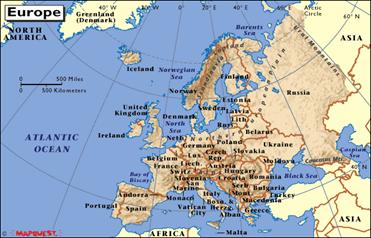
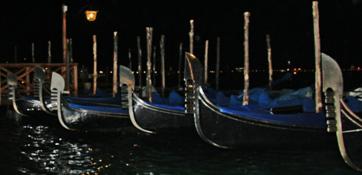
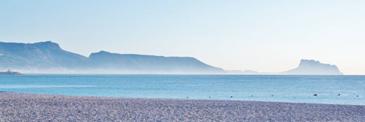

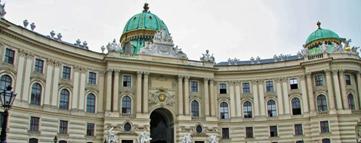
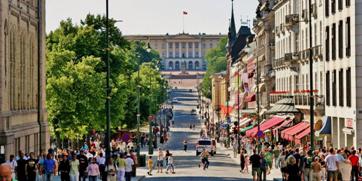
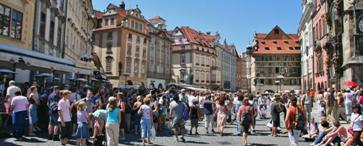

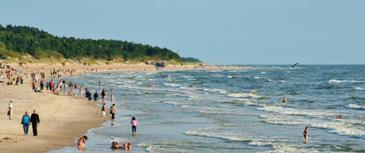
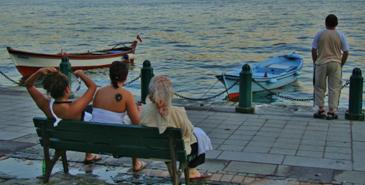









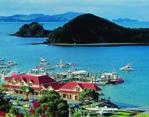

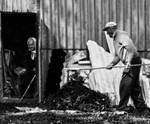



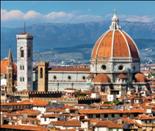
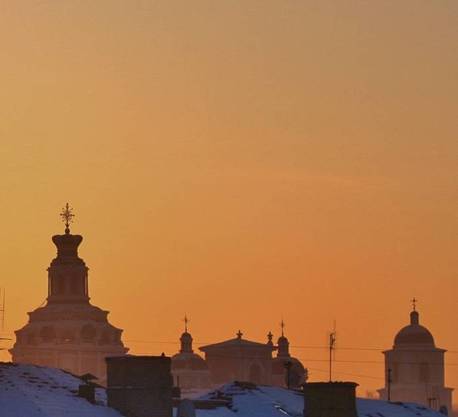
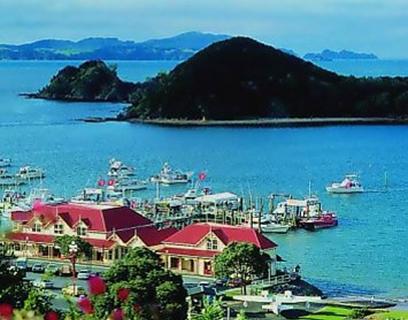
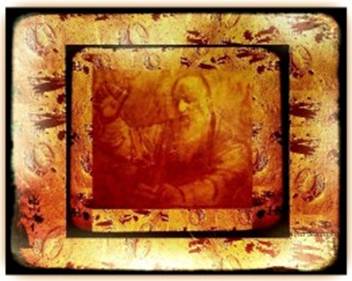









.jpg)



